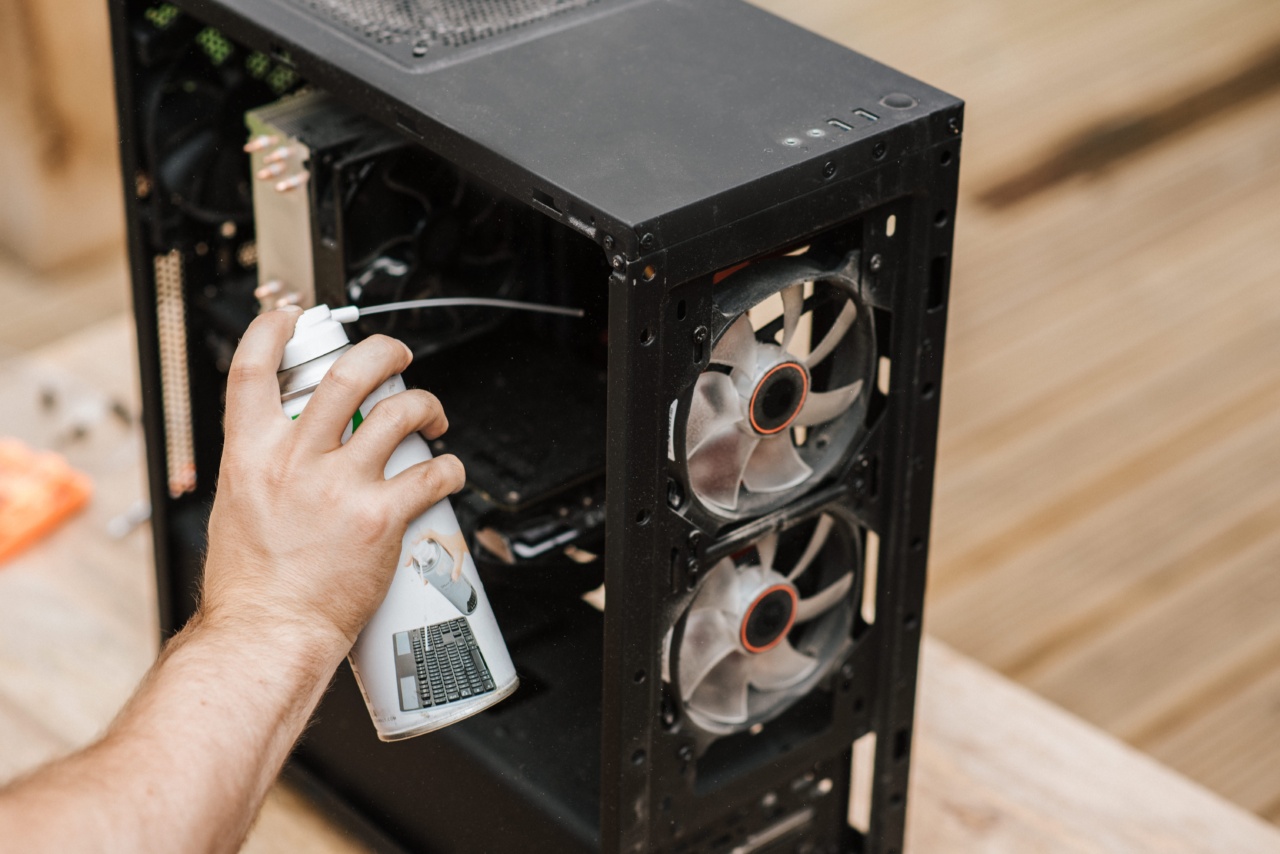Over the past few decades, our society has become increasingly obsessed with cleanliness. We constantly hear messages about the importance of washing our hands, using hand sanitizers, disinfecting surfaces, and avoiding germs at all costs.
While good hygiene practices are certainly important for maintaining our health, there is growing evidence that suggests being too clean may actually be harmful.
The Hygiene Hypothesis
The hygiene hypothesis, first proposed by David P. Strachan in 1989, suggests that exposure to certain microbes early in life is essential for the proper development of the immune system.
According to this hypothesis, children growing up in overly clean environments, with limited exposure to bacteria and other microbes, are more susceptible to allergies, autoimmune disorders, and even asthma.
Research has shown that children who grow up on farms, where they are exposed to a wide range of microbes, have a lower risk of developing allergies and asthma compared to those who grow up in urban settings.
This supports the notion that a lack of early microbial exposure can have long-term health consequences.
The Importance of a Diverse Microbiome
Our bodies are teeming with trillions of microbes, collectively known as the microbiome. These microbes, which include bacteria, viruses, fungi, and other microorganisms, play a crucial role in maintaining our overall health.
They help digest food, produce important vitamins, regulate our immune system, and protect against harmful pathogens.
When we overly sanitize our environments and avoid exposure to bacteria and other microbes, we disrupt the delicate balance of our microbiome. This can lead to a reduced diversity of microbes, which in turn can impact our health.
Studies have linked a less diverse microbiome to various health conditions, including obesity, diabetes, inflammatory bowel disease, and mental health disorders.
The Link Between Cleanliness and Allergies
The incidence of allergies has been on the rise in recent decades, especially in developed countries where cleanliness is highly emphasized. This has led researchers to investigate the connection between cleanliness and allergic diseases.
The evidence suggests that a lack of early exposure to microbes, as a result of excessive cleanliness, may be contributing to the increased prevalence of allergies.
Studies have shown that children who grow up in homes with pets, which expose them to a wider range of microbes, have a lower risk of developing allergies.
Exposure to dirt, farm animals, and other less sterile environments during early childhood also appears to be protective against allergies. This further supports the hygiene hypothesis and highlights the potential dangers of being too clean.
The Impact on the Immune System
Our immune system is designed to defend our bodies against harmful pathogens. However, in order to function properly, it needs regular stimulation.
When we live in overly clean environments, our immune system may not be adequately challenged, leading to an overactive response to harmless substances like pollen or certain foods.
Exposure to certain microbes early in life helps train and modulate our immune system, teaching it to differentiate between harmful pathogens and harmless substances.
Without this early microbial exposure, our immune system may become overly sensitive, resulting in allergic reactions and autoimmune disorders.
The Role of Probiotics
Probiotics are beneficial bacteria and yeasts that can promote a healthy microbiome and support immune function. They are found in certain foods, such as yogurt, sauerkraut, and kimchi, as well as in supplement form.
Including probiotic-rich foods in our diet can help replenish and diversify our microbiome, potentially protecting against the negative consequences of excessive cleanliness.
Research on probiotics has shown promising results in reducing the risk of allergies, improving digestive health, and even promoting mental well-being.
By supplementing our microbiome with these beneficial microbes, we can counterbalance the detrimental effects of being too clean.
The Psychological Impact
Aside from the potential harm to our physical health, the obsession with cleanliness can also have negative psychological effects.
Constantly worrying about germs and bacteria can lead to increased anxiety, fear, and even obsessive-compulsive tendencies.
In today’s hyper-sanitized world, the fear of getting sick or contracting diseases has become pervasive. This fear can lead to unnecessary stress and affect our mental well-being.
It’s important to strike a balance between maintaining good hygiene practices and not letting our cleanliness obsession consume us.
The Benefits of Dirt and Outdoor Play
While cleanliness is important, exposure to dirt and outdoor play can have numerous health benefits, especially for children.
Playing outside exposes children to a wider variety of microbes, helping to strengthen their immune system and promote overall health.
Studies have shown that children who spend more time outdoors have lower rates of myopia (nearsightedness), obesity, and attention deficit hyperactivity disorder (ADHD).
Outdoor play also promotes physical activity, social interaction, creativity, and cognitive development.
Balancing Cleanliness and Health
It is crucial to strike a balance between maintaining good hygiene practices and allowing ourselves and our children to have exposure to a diverse range of microbes. Here are a few tips to achieve this balance:.
- Wash hands regularly but avoid overusing antibacterial soaps and hand sanitizers.
- Let children play outside and explore nature, encouraging contact with dirt and natural environments.
- Consider getting a pet, as studies have shown they can contribute to a healthier microbiome and reduce the risk of allergies.
- Include probiotic-rich foods in your diet or consider taking probiotic supplements.
- Be mindful of unnecessary over-cleaning and disinfecting of surfaces in your home.
The Takeaway
While cleanliness is important for preventing the spread of infectious diseases, being too clean may have unintended consequences for our health.
The hygiene hypothesis suggests that a lack of early exposure to microbes can lead to allergies, autoimmune disorders, and other health problems.
Maintaining a diverse microbiome, exposing ourselves to a range of microbes, and striking a balance between cleanliness and healthy microbial exposure are all essential for our overall well-being.
So, embrace a little dirt and don’t be afraid to let go of excessive cleanliness for the sake of your health.































